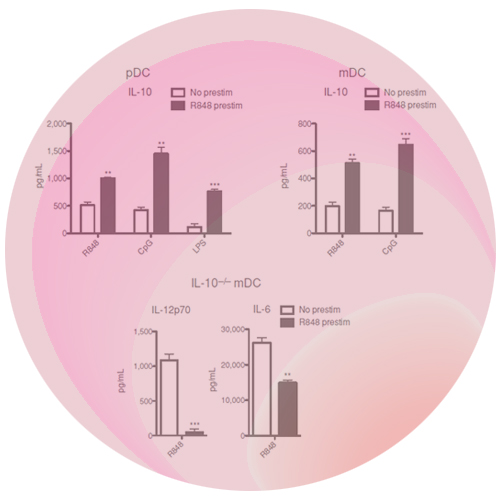Systemic Cancer Therapy with a Small Molecule Agonist of Toll-like Receptor 7 Can Be Improved by Circumventing TLR Tolerance
22-Jun-2011
Cancer Research, 2011, doi: 10.1158/0008-5472.CAN-10-3903, published on 22.06.2011
Cancer Research, online article
Cancer Research, online article
Topical application of small molecule Toll-like receptor 7 (TLR7) agonists is highly effective for the treatment of skin tumors, whereas their systemic application has been largely unsuccessful for cancer therapy. One reason may be that repeated systemic application of TLR ligands can induce a state of immune unresponsiveness, termed TLR tolerance. We show here that a single injection of the TLR7 agonist R848 in mice induces a short period of increased response to TLR stimulation followed by a state of hyporesponsiveness lasting several days. This state is characterized by inhibited secretion of the key cytokines IL-12p70 and IL-6 as well as by a block in IFN-α production. We demonstrate for the first time that at the cellular level, TLR7 tolerance occurs in both plasmacytoid and myeloid dendritic cells, two cell populations that play a critical role in the initiation and amplification of antitumor immune responses. We further show that TLR7 tolerance in plasmacytoid dendritic cells is accompanied by downregulation of the adaptor protein interleukin-1 receptor-associated kinase (IRAK-1). Based on these findings, we have designed a novel strategy for the treatment of tumors using cycles of repeated R848 injections separated by treatment-free intervals. We show in CT26 tumor-bearing mice that this protocol circumvents TLR7 tolerance and improves the efficacy of cancer immunotherapy.











